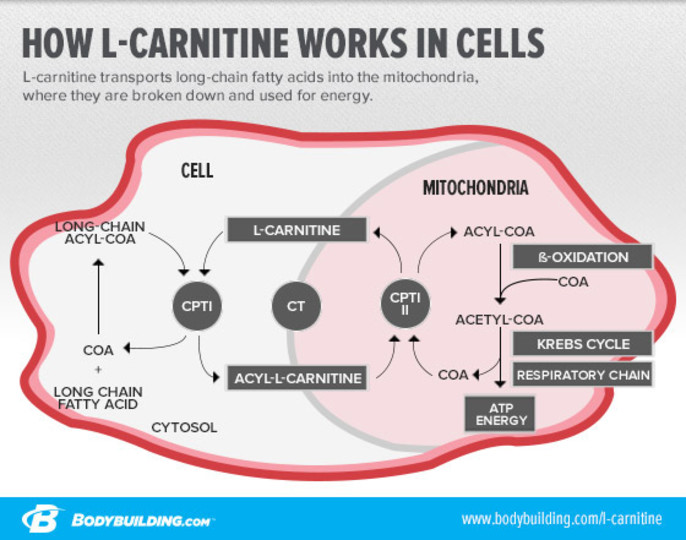What You Should Know About L-Carnitine

L-Carnitine (also known as acetyl-l-carnitine) is a monovalent covalent secondary amine. Carnitine is an important covalently bonded amino acid involved in aerobic metabolism in all mammals, plants and some bacteria.
In support of energy consumption, l-carnitine facilitates the transportation of long-chain saturated fatty acids to the mitochondria for oxidative phosphorylation. Long chain saturated fats are essential for energy generation in cells because they contain no short-chain unsaturated fatty acids. Oxidative phosphorylation produces ATP (adenosine triphosphate). ATP is then used to generate energy via chemical reactions.
Some forms of cancer are believed to result from a l-carnitine deficiency. When l-carnitine is taken with other antioxidants, it may help prevent these diseases. Although l-carnitine has been shown to increase lifespan in many animal studies, it is not yet well known whether it can extend human lifespan. L-carnitine has also been shown to improve insulin sensitivity in animals, but its effect on humans is not yet clear.
L-carnitine has been found to increase energy expenditure and improve metabolic processes, but it has not yet been determined whether it helps in the control of blood sugar levels. L-carnitine appears to enhance neuroimmune activity and may even help to slow down aging.
L-carnitine supplementation may also have an effect on the brain and the nervous system. In some studies, l-carnitine has been shown to enhance learning and memory. L-carnitine may also have a positive effect on the immune system and has even been linked to increased longevity in animals.
L-carnitine may also help treat some cancers. In studies where patients have undergone surgical procedures, l-carnitine has shown a protective effect against chemotherapy-induced myelosuppression and in some studies it has reversed chemotherapy toxicity.
L-carnitine has also been found to reduce blood pressure. It may also reduce high blood pressure and increase arterial compliance. L-carnitine has even been shown to inhibit platelet aggregation. Since it is not yet clear whether this effect is permanent, further research is needed.
L-carnitine can also reduce the effects of alcohol, especially when taken with vitamin B complex. This is particularly useful in treating patients with hypovitaminosis D or a lack of vitamin B in their systems.
L-carnitine is also thought to help prevent the development of Alzheimer's disease by preventing neurochemical amyloidosis. However, there is much controversy about whether this effect is true or whether l-carnitine may just be another placebo.

L-carnitine has even been found to slow down aging processes. It may help reverse the progression of aging-related diseases such as Alzheimer's disease and possibly cancer.
Many people are concerned that taking L-carnitine supplements can cause harmful side effects. However, most side effects are temporary and reversible and can be controlled with additional doses.
Some studies have shown that, due to the relatively low rate of absorption, L-carnitine has practically no effect on the body. Most people experience no side effects at all from L-carnitine and Maximizer.
However, due to the need to control l-carnitine levels, long-term studies of l-carnitine are limited
There is no evidence that it is harmful to the body when taken as directed, but most people should still talk to their doctor before taking any supplement. If you think you may have an adverse reaction, consult your doctor.
Some L-carnitine supplements are laxative. It shouldn't affect people who are already taking an over-the-counter laxative because it works by stimulating bile production rather than narrowing the lower intestine.
L-carnitine can also be helpful for people suffering from high blood pressure or those taking medications that affect the immune system. In these cases, taking a supplement could help balance out the body's natural defenses. In cases where the immune system is functioning poorly, such as during AIDS or HIV therapy, it can help to strengthen the body's natural defense mechanisms.
L-carnitine should not be taken by those with heart disease, liver disease, kidney or diabetes. Also, it should not be taken if you are pregnant or breastfeeding.